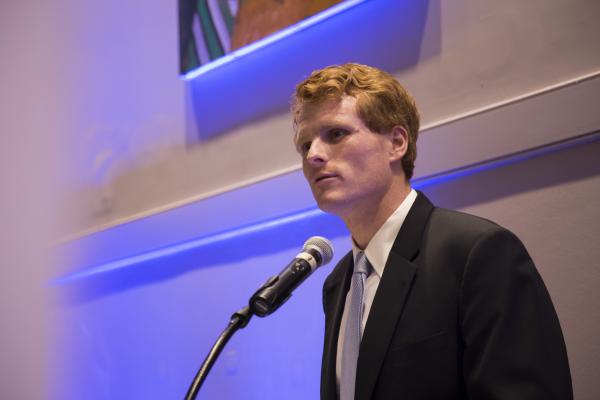Jun 26, 2017
Editor's Note: On June 21, the day before Senate Republicans released the text of their health care plan, Rep. Joe Kennedy (D-Mass.) spoke at The Summit, Sojourners' annual gathering of faith and justice leaders, about the Christian call to recognize the inherent human dignity in those who would be most affected by drastic health care cuts. At the link is the full text of his remarks, as prepared for delivery.
Read the Full Article

Already a subscriber? Login
